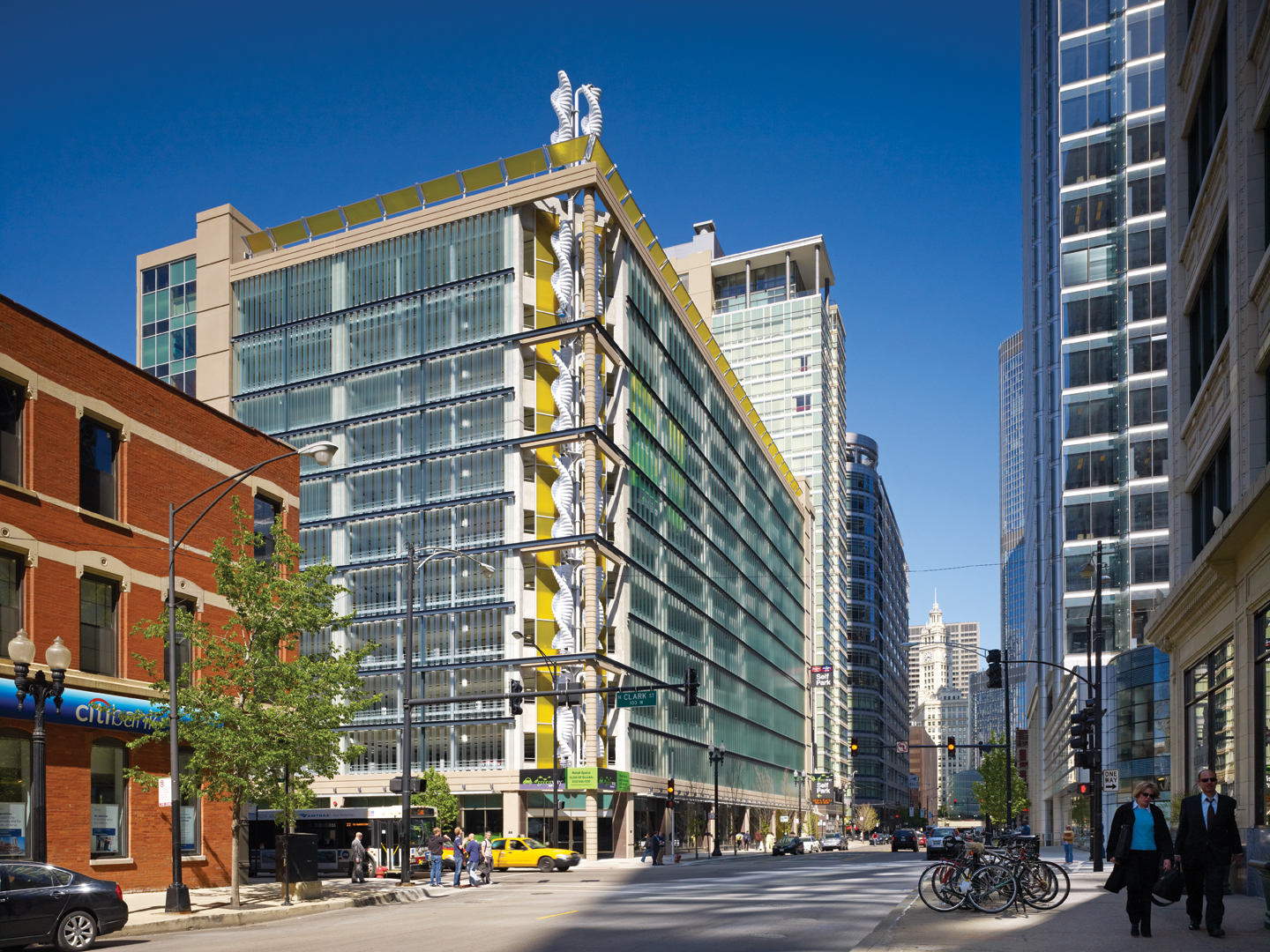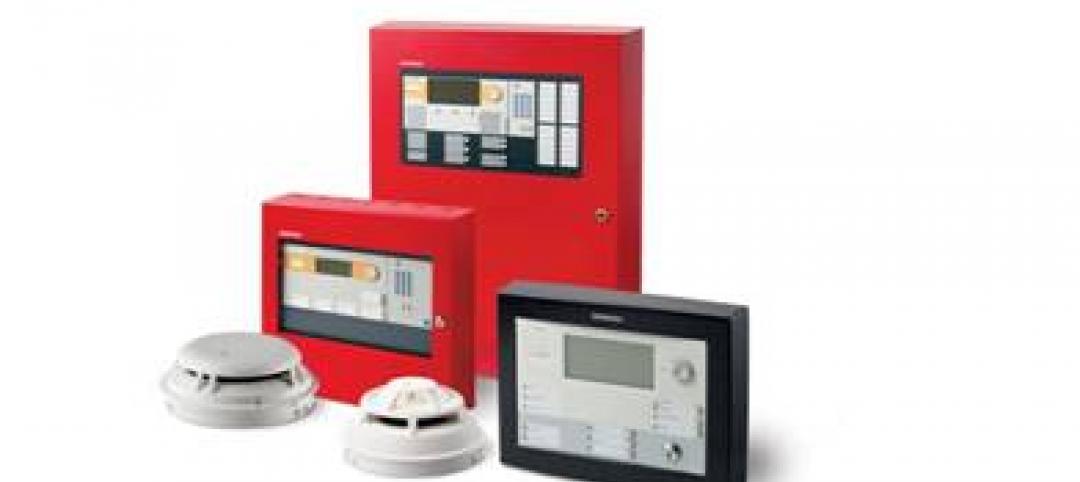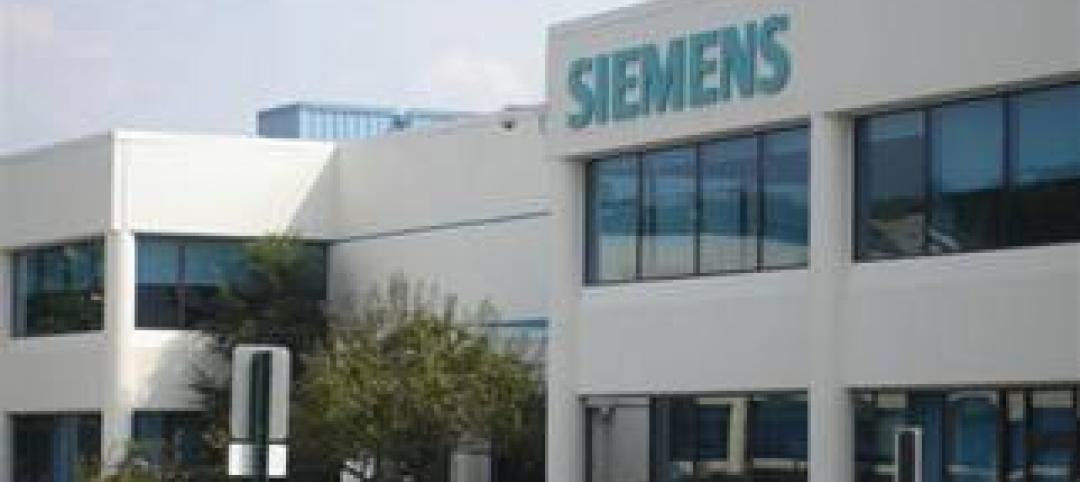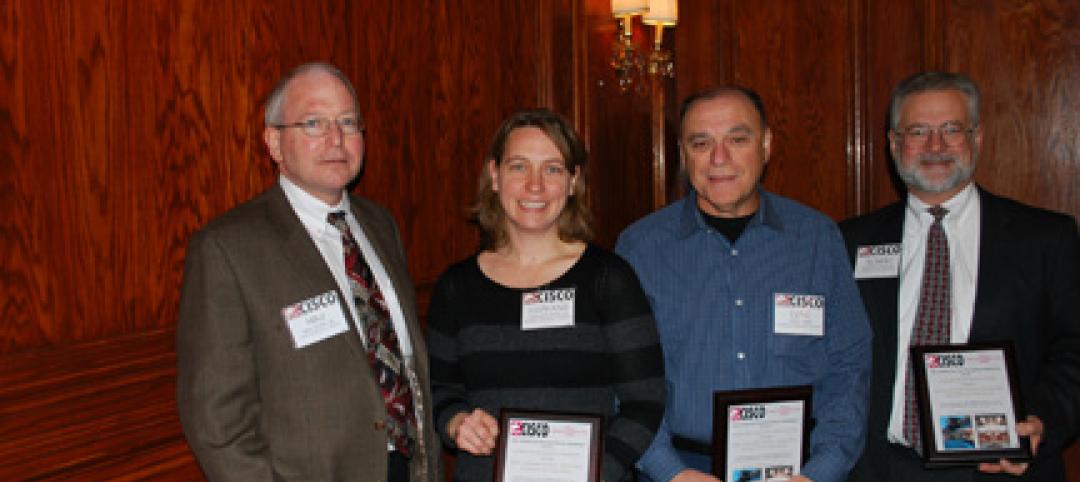The Greenway Self-Park in Chicago’s River North neighborhood shines like a beacon of enlightened green design on a block crowded with office and residential towers. The 285,000-sf parking structure’s green-tinted glass exterior doubles as a ventilation and daylighting system. Its signage gives parkers tips on how to live greener. River North developer Friedman Properties is planning a residential tower next door so that the parking garage’s green roof can serve as a garden for future condo owners.
What sets the 800-car parking structure apart, however, is its 12-paired array of wind turbines. The vertical axis turbines, manufactured by Helix Wind, Poway, Calif., are positioned on the southwest corner of the building near the relatively wide corridor of Clark Street, a busy thoroughfare. Todd Halamka, director of design at the Chicago office of HOK and lead designer on the project, calls the turbines “a kinetic and functional sculpture piece.”
Weather data from collection stations at O’Hare and Midway airports and weather buoys off of Chicago’s lakefront, coupled with wind tunnel tests taken from nearby buildings, were used to evaluate the amount of wind that could be harvested from the site. Estimates by the Building Team put the average wind at that corner at 10 mph at grade level over a year, which, according to the manufacturer, should be sufficient to generate electricity for the structure. The turbines, which extend from the second story to the very top of the structure on the southwest corner of the building, should generate enough power to light the building’s exterior and still send some energy back to the grid through the structure’s reversible electricity meter, Halamka said.
The first day I visited the site there was a strong breeze blowing in from the southwest and the long helical blades of the turbines, shaped from corrugated metal, appeared to be rotating quite actively. On another less windy day, however, they did not appear to be moving at all. Because the parking facility has only been open since September, not enough reliable data has been collected on how much power the turbines have generated.
The Building Team of designers HOK/Cubellis and general contractor Bovis Lend Lease took extra steps to green the parking structure. Greenway Self-Park’s signage gives garage users tips on living more sustainably. Each floor has a different nature theme, such as water, air, and earth conservation. The garage has electric-car charging stations and priority parking for hybrid gas/electric vehicles and for Zipcar and I-Go car-sharing vehicles. Its planned green roof has rainwater cisterns for water collection. Almost all of the building materials were locally sourced. Light sensors control the building’s interior lights and shut them off if enough daylight is coming through the translucent glass-walled exterior.
HOK says the building is registered with LEED and is currently in the commissioning process. “Rather than design a traditional closed garage which has an MEP system and has to run 24/7, working with the city of Chicago we were successful in creating a naturally ventilated garage,” Halamka said. Each floor maintains at least 20% open exterior wall area that provides natural ventilation. “We varied the openings (on the channel glassed walls) so that the glass panels have different spacing that creates a subtle visual tapestry, so that each façade takes advantage of the natural light and air,” he said.
As Chicago’s River North neighborhood continues to develop, Halamka says he believes a more sustainable urban strategy would be to build out the surrounding surface parking lots with ground-floor retail capped with office and residential space and then condense the parking into a more vertical arrangement that promotes local live-work opportunities. “Cars are an inevitable means of transportation,” said Halamka. “It is how we choose to live and use our vehicles in a more sustainable lifestyle that is important.”
For now, building-mounted wind harvesting like that at Greenway Self-Park is still in its infancy. HOK says both its Chicago office and building owner Friedman Properties are committed to monitoring exactly how much energy the wind turbines at the Greenway Self-Park are generating two years from now, when there will be enough data to gauge actual production. BD+C
Related Stories
| Feb 24, 2012
Pottorff elevated to principal at Ricci Greene Associates
Pottorff is recognized in the justice field as an expert solely dedicated to the design and planning of courts and urban jails in both the U.S. and Canada.
| Feb 24, 2012
Skanska hires Tingle as senior VP and national director for its Sports Center of Excellence
Tingle has worked in the architecture and construction industries for more than 30 years, and for the last 23 years, he has focused primarily on large-scale sports construction projects
| Feb 23, 2012
Federal budget cuts put major building projects on hold
A plan to build the National Bio and Agro-Defense Facility in Kansas is among several major building projects in jeopardy after the Obama administration’s 2013 budget was unveiled. The budget would cut all construction spending for the facility.
| Feb 23, 2012
Regulators investigating construction accident at World Trade Center
The New York Port Authority and the city’s fire and building departments are investigating an accident at the World Trade Center construction site in lower Manhattan after a crane dropped steel beams that fell about 40 stories onto the truck that delivered them.
| Feb 22, 2012
ACI BIM manual for cast-in-place concrete in development
The improved communication, coordination, and collaboration afforded by BIM implementation have already been shown to save time and money in projects.
| Feb 22, 2012
Siemens earns LEED certification for Maryland office
The Beltsville facility, which also earned the ENERGY STAR Label for energy performance, implemented a range of energy efficiency, water conservation and sustainable operations measures as part of the certification process.
| Feb 22, 2012
CISCO recognizes Gilbane for quality construction, design, and safety
The project employed more than 2,000 tradespeople for a total of 2.1 million hours worked – all without a single lost-time accident.
| Feb 22, 2012
Perkins Eastman expands portfolio in China and Vietnam
Recent awards, project progress signal ongoing commitment to region.
| Feb 22, 2012
Suffolk awarded Boston post office renovation project
Renovation of art deco landmark will add 21,000 square feet of retail and 110 new parking spaces.

















